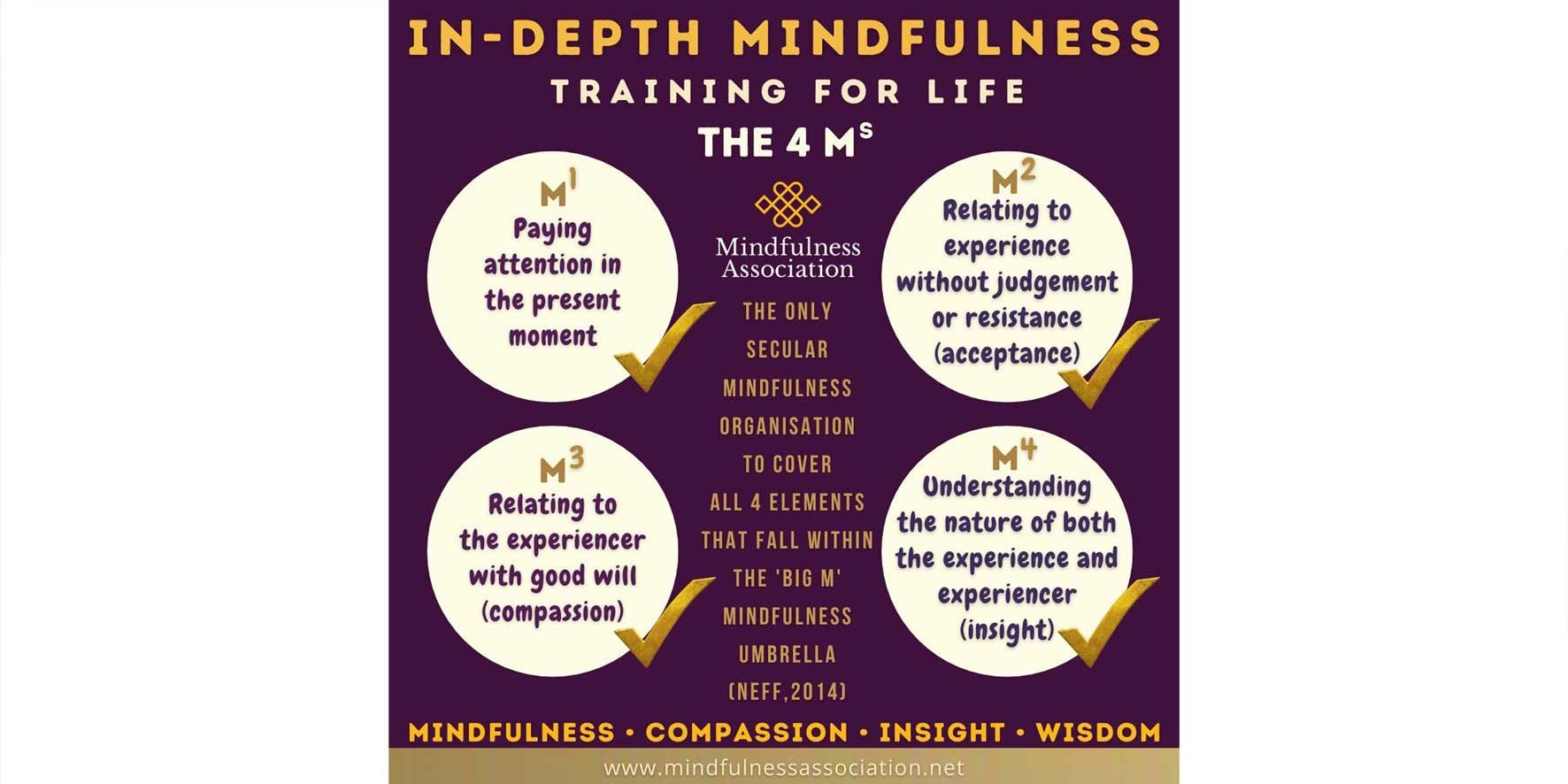I was recently at Aberdeen University to spend a weekend with the third year students from the MSc in Studies in Mindfulness. This is a collaboration between the University and the Mindfulness Association. The students were just beginning their dissertations or work based projects.
Each year we have a fabulous presentation by Dr. Jane Kellock about Researching Mindfully. In her presentation Jane shares the methodology (hermeneutic phenomenological inquiry) she used in her PhD, which was sponsored by the Mindfulness Association, in order to explore the lived experience of those who have engaged in the long terms meditation training pathway we offer. This pathway starts with mindfulness and then continues with compassion and insight meditation training. You can download Jane’s research from the research page of our website.
As part of her presentation Jane recalls what self-compassion expert Kristin Neff said about the Mindfulness Association’s mindfulness meditation training at our 2014 conference. She referred to it as the only secular (non-Buddhist) training that engages with all four elements of ‘Big M’ Mindfulness.
But what are the four elements that fall within the ‘Big M’ Mindfulness umbrella?
m1 – paying attention in the present moment (mindfulness)
m2 – relating to experience without judgement or resistance (acceptance)
m3 – relating to the experiencer with good will (compassion)
m4 – understanding the nature of the both experience and experiencer (insight)
(Neff, 2014)
Key findings from Jane’s research are that:
- The initial motivation for following a long term path of mindfulness practice included a life-altering experience, such as a loss or death of someone close which altered the participant’s belief about the world.
- Participants had a previous interest in meditative or contemplative practice before following a long term path of mindfulness practice.
- The participant’s situational context (life circumstances) acted as an enabling or inhibiting force to their commitment to long term mindfulness practice.
- The participant’s intentions, beliefs and frame of mind altered through mindfulness meditation practice.
- Life enhancing changes were found in:
- Family and social relationships
- Mental and physical health
- Psychological states of being
- Experiences of spirituality or connection
- Connection with the environment
- Some changes had important negative connotations, but were viewed by participants paradoxically as positive.
Many of the short-term mindfulness courses, the use of apps or other online platforms can be helpful, for example to relieve stress and enable short term periods of relative calm. They tend to focus on m1, with an element of m2 and can enable participants to experience a state of mindfulness during periods when they are actively practicing mindfulness meditation.
However, for life transformation in which one embodies the traits of mindfulness in daily life and not only during periods of mindfulness meditation practice, a more in-depth and systematic training is called for, including m1 to m4, and supported by experienced teachers and a community of practice. Such a training enables a quality of presence in daily life in which one embodies the attitudinal foundations of mindfulness: non-judging, patience, beginners mind, trust, non-striving, acceptance and letting go.
The Mindfulness Association can offer the ‘Big M’ training via it’s Level 1 Being Present Training, Level 2 Responding with Compassion Training and Level 3 Seeing Deeply training over three years. This training is also available in the two Masters degree courses we offer in collaboration with the University of Aberdeen and the University of the West of Scotland.
So if you enjoy a ‘state’ of mindfulness, why not develop that into a ‘trait’ of mindfulness by joining following our long term, in depth, systematic, ‘Big M’ training in mindfulness meditation.
Kind Wishes,
Heather


